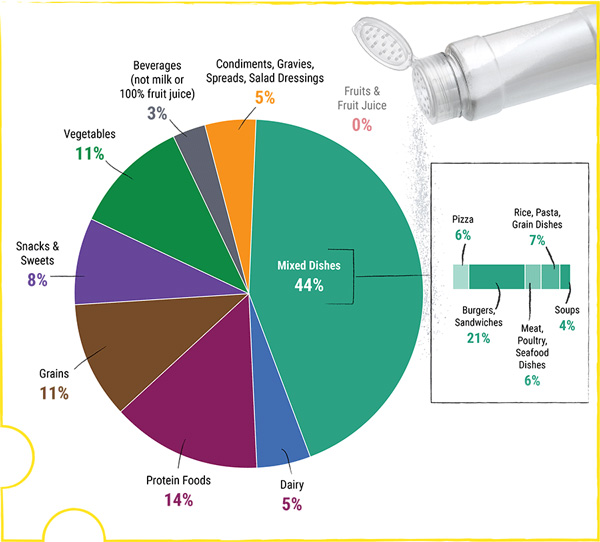1 Cor. 6:19-20 Do you not know that your body is a temple of the Holy Spirit, who is in you, whom you have received from GOD? You are not your own; you were bought at a price. Therefore honor GOD with your body. [New International translation]
BIBLICAL COMMENTS
One of the most extraordinary events in human history is the indwelling of GOD’s HOLY SPIRIT within our bodies. Paul tells us in 1 Cor. 6:19 that our bodies are human “churches” or “temples.” Each of us is a temple. These “temples” are of extraordinary value to GOD because JESUS sacrificed HIMSELF so that we might have life----life here on earth and everlasting spiritual life hereafter. We are physical and spiritual temples.
Like any temple, a certain amount of regular and ongoing maintenance is necessary! So it is with our bodies and spirit.
Physical Maintenance Guidelines
Physical maintenance of our bodies is essential for good health. If we were to compare our bodies to a physical church, we could point out that maintenance of a physical church is important. This would include cleaning the pews, mopping floors, setting the right temperature, making sure there are functioning toilets, removing trash or garbage, examining carpets for tripping hazards, dusting and sanitizing tables and chairs.
Just like a car requires a certain amount of maintenance (e.g. oil changes, tire rotation, checking the brakes and tires, winterizing the car by putting in antifreeze or checking the water and oil levels), our bodies requires maintenance too.
The U.S. Nutritional Guidelines, released by the Department of Agriculture and the Department of Health and Human Services contains advice about what we should and should not eat. The guidelines, published every 5 years, aim to reflect the latest scientific evidence and research on how we can maintain our health by what we eat.
New Guidelines Regarding Salt
Statistics show most Americans are consuming significantly too much salt.
Old Guidelines
The old guidelines recommended that everyone 2 years old and up consume less than 2,300 milligrams (i.e. less than a teaspoon) of sodium/salt per day---AND that some groups including (a) anyone who is 51 years or older; (b) African-American or (c) anyone who has high blood pressure, diabetes, or chronic kidney disease limit their salt intake to 1500 milligrams per day.
New Guidelines
The new guidelines again emphasize the importance of Americans limiting their salt intake. According to the new guidelines, studies show that average intake of sodium in American is high. Average intakes from age 1 and older is 3440 mg per day! According to the guidelines, the average intake for males tends to be higher than for females.
According to WebMD, more than 90% of children and 89% of all adults consume more sodium than recommended by the new guidelines. WebMD points out that:
“Nearly all Americans, regardless of age, race or gender consume more salt than is recommended for a healthy diet.”
See, Americans Still Consume Too Much Salt: CDC, www.WebMD.com. Most Americans are getting their sodium from the following sources, usually as a result of added salt in food processing or in home food preparation (e.g. by added salt to foods during the preparation of a meal at home). WebMD also notes that food processing and restaurant preparation account for Americans consuming too much salt.

Too much salt can increase a person’s risk for high blood pressure, heart disease and stroke. Reducing salt can lower blood pressure and lower a person’s risk for stroke and heart disease. One researcher pointed out that nearly 70 million Americans have high blood pressure and only about ½ have it under control and nearly 800,000 Americans die from strokes, heart disease or other heart-related illnesses every year.
WebMD offers 5 tips for reducing salt intake:
- Break the habit of automatically reaching for your salt shaker. [Just remove all the salt shakers from the table.]
- Read the labels when you are shopping and look for lower-sodium items. [Remember, your taste buds will adjust.]
- Eat fewer processed and packaged foods. Packaged, processed foods account for most of the sodium in people's diets.
- At restaurants, ask about salt added to food. Many chefs will skip or cut back on salt if you ask.
- If a restaurant posts the nutrition for its dishes, check how much sodium is in a serving. Also, look for lower-sodium options on the menu.
Be proactive about your physical health!
Spiritual Maintenance
Be proactive about your spiritual health as well! Examine yourself. See, 1 Corinthians 11:28. What spiritual gifts has GOD given you? Are you maintaining your spiritual gifts? Are you being all you can be for HIM? Pray about it. Ask GOD. Meditate on it! Pray that the HOLY SPIRIT gives you a SPIRITUAL “tune-up,” removing any “corrosive doubts” that would hinder HIS WILL for your life.
Be proactive about your spiritual health!
Honor GOD in body and spirit and BE BLESSED


